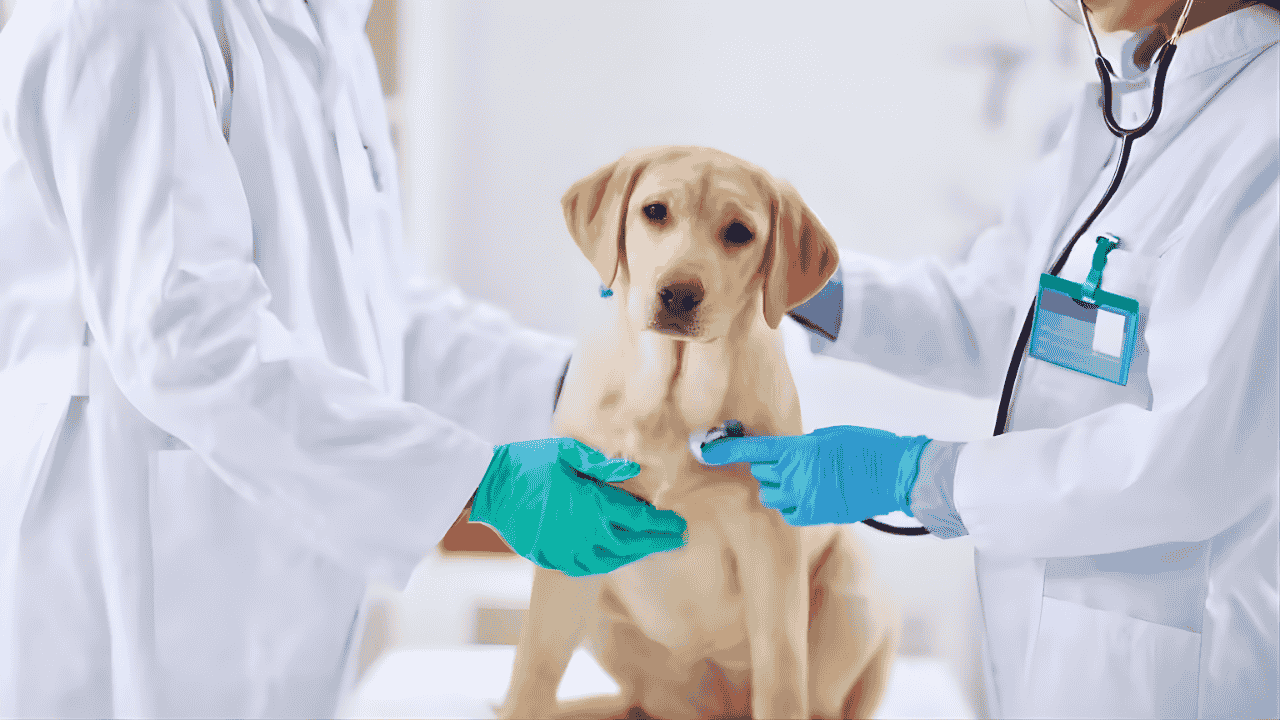Every pet parent wants their dog to stay healthy, happy, and full of energy. But dogs can’t tell us when something feels wrong, which means it’s our responsibility to notice the early signs of illness. According to U.S. veterinary experts, paying attention to small behavioral or physical changes can make a big difference in diagnosing health issues before they become serious. Early detection often leads to faster treatment and a better recovery for your dog. Many common health problems can start subtly — a change in appetite, energy levels, or behavior might seem harmless at first but could signal something deeper. Knowing what to watch for helps you act quickly and keep your pet safe.
How to Notice Changes in Eating or Drinking Habits
One of the first signs of illness in dogs is a sudden change in appetite or water intake. If your dog refuses food for more than a day, eats much less than usual, or begins drinking excessively, it could be a red flag. Loss of appetite may be linked to dental pain, infections, or digestive issues, while drinking too much water can indicate diabetes, kidney disease, or Cushing’s syndrome. Veterinarians recommend monitoring your dog’s normal eating and drinking patterns so that you can quickly recognize when something is off. Keeping a daily routine helps you identify changes early and discuss them with your vet.
What is the Meaning of Persistent Vomiting or Diarrhea
Occasional stomach upset is normal for dogs, especially if they eat something unusual during a walk. However, persistent vomiting or diarrhea lasting more than 24 hours is a sign that shouldn’t be ignored. Dehydration can occur quickly, and frequent vomiting may point to problems like infections, pancreatitis, or intestinal blockages. If your dog vomits repeatedly, has blood in the stool, or seems weak and disoriented, experts advise seeking veterinary care immediately. A vet can perform tests to determine the cause and prevent more serious complications.
When Unusual Lethargy or Fatigue Becomes Concerning
Every dog has lazy days, but if your normally active pet suddenly seems tired, uninterested in walks, or unwilling to play, it could signal an underlying health issue. Lethargy is a common symptom of many conditions, including infections, heart disease, or metabolic problems. Some dogs also become less active when they’re in pain or emotionally stressed. Experts recommend observing how long the fatigue lasts. If your dog remains sluggish for more than a day or two, especially without an obvious cause, it’s time for a check-up.
How to Identify Breathing Problems in Dogs
Healthy dogs breathe quietly and steadily. If you notice your dog panting heavily while resting, coughing frequently, or showing difficulty catching their breath, these could be signs of respiratory distress. Breathing problems can result from allergies, heart disease, or even airway obstruction. In some cases, noisy breathing or wheezing can also suggest kennel cough or bronchitis. U.S. veterinarians stress that breathing issues should never be ignored, as they can worsen quickly. Prompt medical attention ensures your dog gets the right treatment before the condition becomes critical.
What is the Significance of Sudden Weight Loss or Gain
Sudden weight changes can be one of the clearest indicators that your dog’s health needs attention. Unexplained weight loss may point to diabetes, thyroid disorders, or even cancer. On the other hand, rapid weight gain can indicate hormonal imbalances or heart-related problems. Because dogs wear fur, these changes might not be obvious right away. Experts recommend regular weigh-ins at home or during vet visits to track your dog’s health. Maintaining a healthy diet and activity level helps, but drastic changes in weight always deserve professional evaluation.
When Skin and Coat Changes Need Veterinary Attention
A dog’s coat is often a reflection of their overall health. Dry, flaky skin, bald patches, or excessive shedding may be signs of allergies, infections, or nutritional deficiencies. Similarly, constant scratching, biting, or licking can suggest fleas, ticks, or skin irritation. Sometimes, skin changes also point to underlying diseases such as hypothyroidism or autoimmune disorders. If your dog’s coat suddenly looks dull or develops sores, experts recommend a vet visit to rule out parasites and skin conditions before they worsen.
How to Recognize Dental and Gum Problems
Dental health is one of the most overlooked aspects of a dog’s well-being. Bad breath, difficulty eating, drooling, or swollen gums often signal oral problems. Tartar buildup, gum disease, or infected teeth can cause pain and even lead to systemic infections affecting the heart or kidneys. Regular dental check-ups and at-home brushing routines are key to prevention. According to veterinarians, if your dog suddenly avoids hard food or cries when chewing, it’s a sign that a dental exam is needed as soon as possible.
What is the Reason Behind Changes in Behavior or Mood
Dogs are creatures of habit, and sudden shifts in behavior can indicate something is wrong. If your calm dog becomes aggressive, anxious, or withdrawn, it might be due to pain or discomfort. Cognitive disorders, hormonal changes, or neurological problems can also influence behavior. Even subtle changes, such as restlessness at night or hiding in unusual places, should not be ignored. Experts emphasize the importance of trusting your instincts as a pet parent. You know your dog best, and when they seem “off,” it often means they need medical attention.
When Persistent Coughing or Sneezing Becomes a Concern
Coughing and sneezing can result from mild irritants or seasonal allergies, but when these symptoms persist, they may point to respiratory infections, heart problems, or tracheal issues. Kennel cough, for example, is highly contagious and needs proper treatment to prevent complications. If your dog has been coughing for several days or shows signs of nasal discharge and fatigue, veterinarians recommend scheduling an appointment. In some cases, chronic coughing can also signal more serious illnesses such as pneumonia or heartworm disease.
How to Decide When It’s Time to Call the Vet
It’s natural for pet owners to worry about overreacting, but when it comes to your dog’s health, it’s always better to be cautious. Veterinarians agree that any sudden or persistent change in your dog’s appetite, energy, or behavior is reason enough for a check-up. Even if the problem turns out to be minor, a quick visit can offer peace of mind and prevent future issues. Keeping detailed notes about your dog’s symptoms, such as when they began and how severe they are, helps your vet make an accurate diagnosis.
Dogs depend on their owners to recognize when something is wrong. By learning the key warning signs and acting quickly, you can protect your dog’s health and ensure they live a long, comfortable life. Trust your instincts, stay observant, and remember that timely veterinary care is always the best choice for your furry friend.







